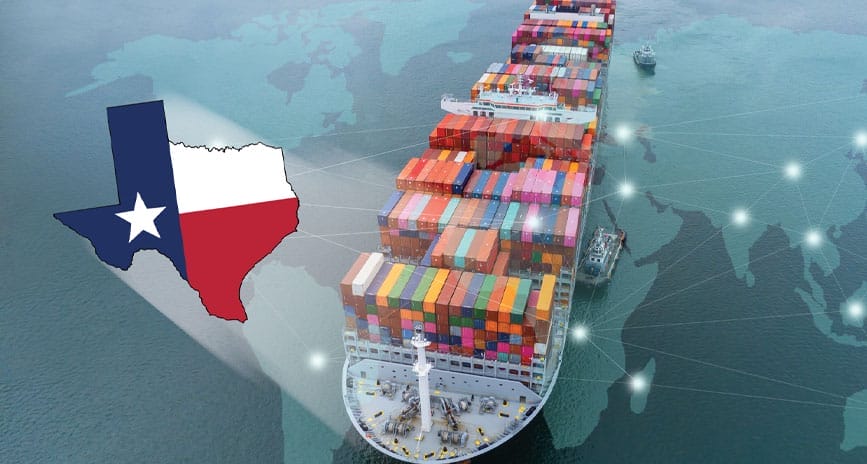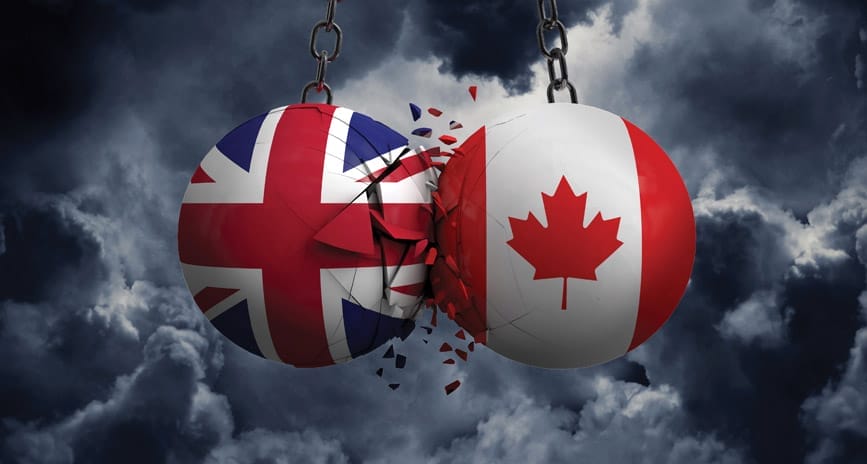I step forward in trepidation to write this article knowing full well that approaching the subject of Brexit is like walking on a hornets’ nest. The likelihood is that I could upset people from both sides of the political debate, but bear with me and I will try to carefully tread a middle path. I do not want to repeat the arguments of the rights and wrongs of Brexit, so for the purposes of this article let’s start from the point that the UK has left the EU and we have to make the best of it; also that Northern Ireland is an immensely complex situation.
Lord Frost and Brandon Lewis recently issued a Command Paper (By the Command of Her Majesty) setting out the UK Government’s understanding of where we are with the Protocol, how we got here, what is going wrong and proposing steps forward. The EU’s immediate reaction was to say that renegotiation is not possible. Conflict appears to be inevitable, but as with so many aspects of the Brexit agreement all may not be as it seems. The Northern Ireland Protocol was tagged onto the Brexit Agreement to try to resolve several conflicting issues around the reality of practicalities arising from the only land border between the UK and the EU. These involve the EU’s demand to safeguard the integrity of the single market, whilst honouring the commitments of the Good Friday Agreement that had brought to an end decades of sectarian conflict, and to enable cross border trade.
The demand was that a hard border must be avoided at all costs in order not to inflame sectarian tensions, although this requirement was not accepted by all as necessary. The result was the Protocol which twists itself in knots to allow both sides to say they have achieved everything they wanted, but the corollary is also true.
The Protocol could have been written by Erwin Schrödinger!
So, it results in a border in the Irish Sea, that should not impede intra UK trade, but protects the single market. It also includes ‘get out of jail’ clauses in case the effects are not going the way either side wants. This oft quoted Safeguarding section, set out in Article 16, was instigated, or threatened to be instigated (depending on who you listen to) in January this year by the EU in order to prevent Vaccines from crossing the border. The Command Paper points out that this was “without warning or consultation”. The EU quickly reversed their action following an intervention by the Republic of Ireland Government, which let it be known that they were furious at not being consulted themselves.
This “rash” action by the EU is used by Frost and Lewis as a reason to raise the UK’s justification for itself using Article 16 to overcome the many issues it sets out. To go through the looking glass, critics say that the UK is trying to breach the Protocol when it would use a part of the Protocol as it is intended. The Schrödinger’s Cat puzzle was simplicity itself by comparison. There are two key points in the preamble of the Protocol that are relevant: “Underlining the Union’s (EU) and The United Kingdom’s shared aim of avoiding controls at the ports and airports of Northern Ireland, to the extent possible…” “Determined that the application of this Protocol should impact as little as possible on the everyday life of communities in both Ireland and Northern Ireland.”
As well as the need for “democratic consent”.
The UK Government’s main complaint concerns the over-rigorous implementation of border checks pointing out that 20% of all EU border checks are in Northern Ireland, whose population of 1.9m is equivalent to just 0.3% of EU population. This is leading to difficulties for traders and affecting supplies to retailers in Northern Ireland. They go into a number of the statistics of the hundreds of millions of pounds that have been spent on implementing the requirements; of the 1,800 veterinarians qualified to sign Export Health Certificates and much, much more.
So, what are Frost and Lewis asking for?
They are happy with the operation of many parts of the Protocol but want to bring a “new balance” to the framework with a focus on trade in goods in order to remove the burden on intra UK trade. The threat to the EU is clear, negotiate this new balance in good faith and proportionately or the UK will implement Article 16. A section of the opening wording of the Article, “If the application of this Protocol leads to serious economic, societal or environmental difficulties that are liable to persist, or to diversion of trade…” does not seem a high bar to pass.
The EU have countered that the answer is simple to avoid many of the checks and reams of paperwork: the UK should permanently accept more EU regulation. This may give a hint to the real reason behind all this. As will not surprise anyone the UK’s reaction is that this is a non-starter.
Will the EU negotiate?
There are nonstop talking shops in the committees managing the UK-EU relationship. So, the UK may call the ensuing discussions negotiations whilst the EU deny that they are anything more than talks. The whole of the Protocol is designed to allow each side to portray it how they please, but inevitably this creates unresolvable issues. The UK is openly acknowledging this and looking for a realistic way forward.
Will it change?
Inevitably, but it is not clear how or to what extent and it is not hard to imagine the Protocol and the Brexit Agreement collapsing in the vacuum of continuing disagreement, which Is not in anyone’s interest. There are likely to be fudges and short term measures along the way that allow this to drag on.
Anyone know where we can get hold of Schrödinger and Einstein for a cat chat?

Tony Goodman MBE is a successful exporter and has been doing so through a variety of different businesses. He is currently Marketing Advisor at Forest and Co who specialise in offering guidance on branding, exporting and sales: www.forestandco.com




